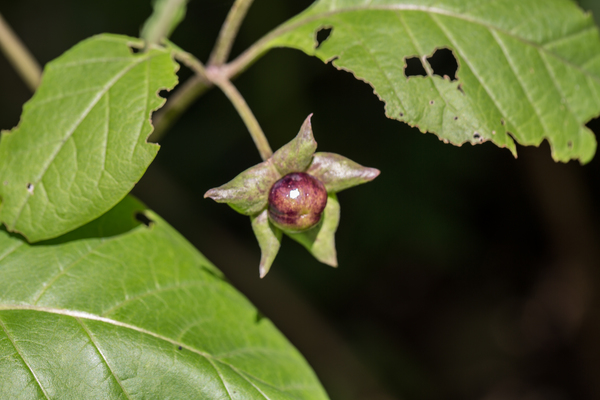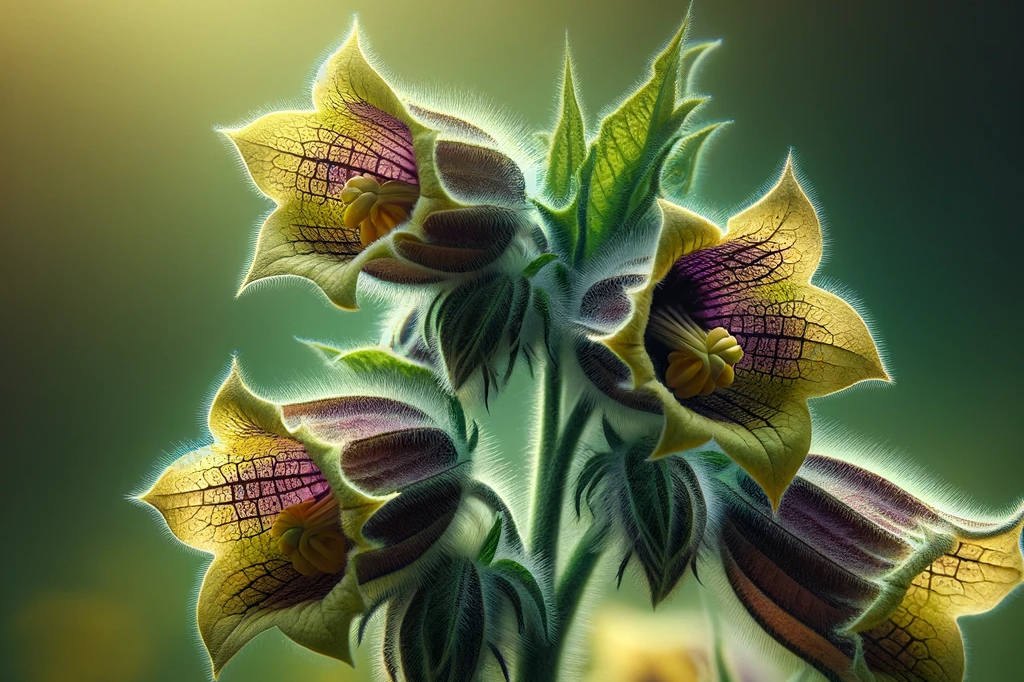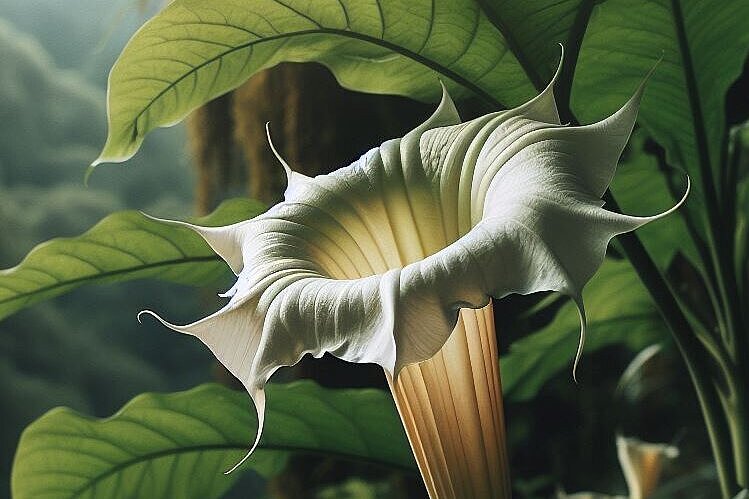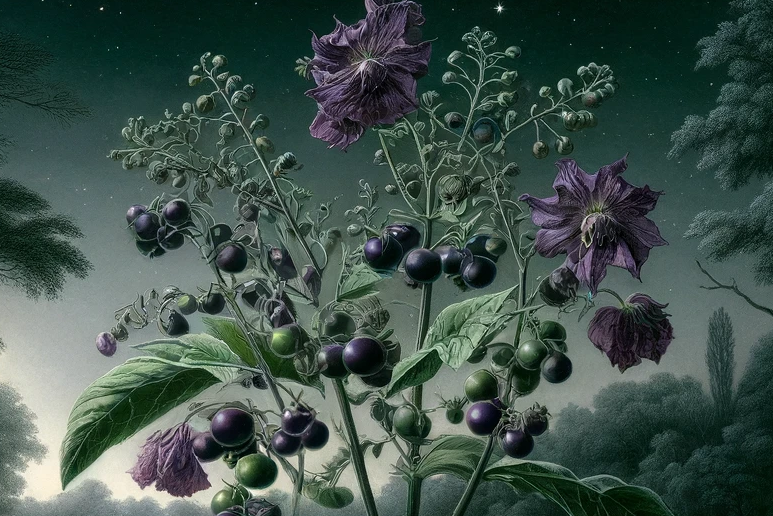Common datura

What is the common datura?
Datura is a member of the nightshade family, like the potato or tomato. It grows as an annual herb up to one meter high and is widespread in many parts of the world. It is sometimes cultivated as an ornamental plant, but is also controlled as a weed.
The common datura contains various alkaloids, especially scopolamine, which have a strong effect on the nervous system. These substances can cause hallucinations, convulsions, palpitations and even death. This is why the common datura is also abused as a drug, which is very dangerous.
Why is datura poisonous to dogs?
All parts of the common datura are poisonous to dogs, especially the leaves, flowers and seeds. Even small amounts can lead to severe poisoning. Symptoms can vary depending on the dose ingested, but typical symptoms include
- Accelerated breathing
- thirst
- Difficulty swallowing
- Dilated pupils and visual disturbances
- Restlessness and drowsiness
- Cramps and tremors
- Palpitations and cardiac arrhythmia
- Respiratory paralysis
If you suspect that your dog has eaten something from the common datura, you should consult a vet immediately. This is a life-threatening emergency!
How can you treat poisoning with common datura?
The vet will try to remove the poison from your dog's body and alleviate the symptoms. They may take the following measures:
- Give activated charcoal to bind the poison in the stomach
- Induce laxatives or vomiting to remove the poison from the intestines
- Inject antidote (physostigmine) to neutralize the effect of the scopolamine
- Give infusions to stabilize the fluid and electrolyte balance
- Give anticonvulsant medication to calm the muscle spasms
- Monitor vital functions and provide support if necessary
The prognosis depends on the severity of the poisoning. The quicker you react, the better the chances are for your dog.
How can you prevent poisoning with common datura?
The best prevention is to keep your dog away from datura. If you have this plant in your garden, you should remove it or at least make sure that your dog does not have access to it. When you take your dog for a walk, make sure he doesn't eat anything from the ground or sniff unfamiliar plants.
You should also teach your dog to only eat what you give him or allow him to eat. This will not only protect him from the common datura, but also from other poisonous plants or dangerous substances.
Datura is a very poisonous plant for dogs and other animals. It can cause severe poisoning with life-threatening symptoms. If you suspect that your dog has eaten something from the common datura, you should consult a vet immediately. To avoid poisoning, keep your dog away from datura and teach him not to eat anything unfamiliar.
If you notice any signs of hypersensitivity or poisoning in your dog, you should see your vet immediately. We are not a substitute for a vet, but we try to be as accurate as possible. Every dog reacts differently and we recommend you get a second opinion or consult your vet if in doubt.
Stay healthy and take good care of your four-legged friend!😊
Similar to Common datura
Belladonna (Atropa belladonna) is a perennial shrub from the nightshade family. It can grow up to two meters high and has egg-shaped leaves and bell-shaped flowers, which are brown-purple on the...
Henbane (Hyoscyamus) is a genus of around 23 species that belong to the nightshade family. The best-known species is the black henbane (Hyoscyamus niger), which is also known as witchweed or deadly...
Angel's trumpets belong to the nightshade family (Solanaceae) and are mainly native to South America. They are characterized by their large, trumpet-shaped flowers, which can shine in various colors...
Nightshades, scientifically known as Solanaceae, is a family of plants that includes over 2,000 species. Many are known for their edible fruits, vegetables or herbs, including tomatoes, potatoes,...



